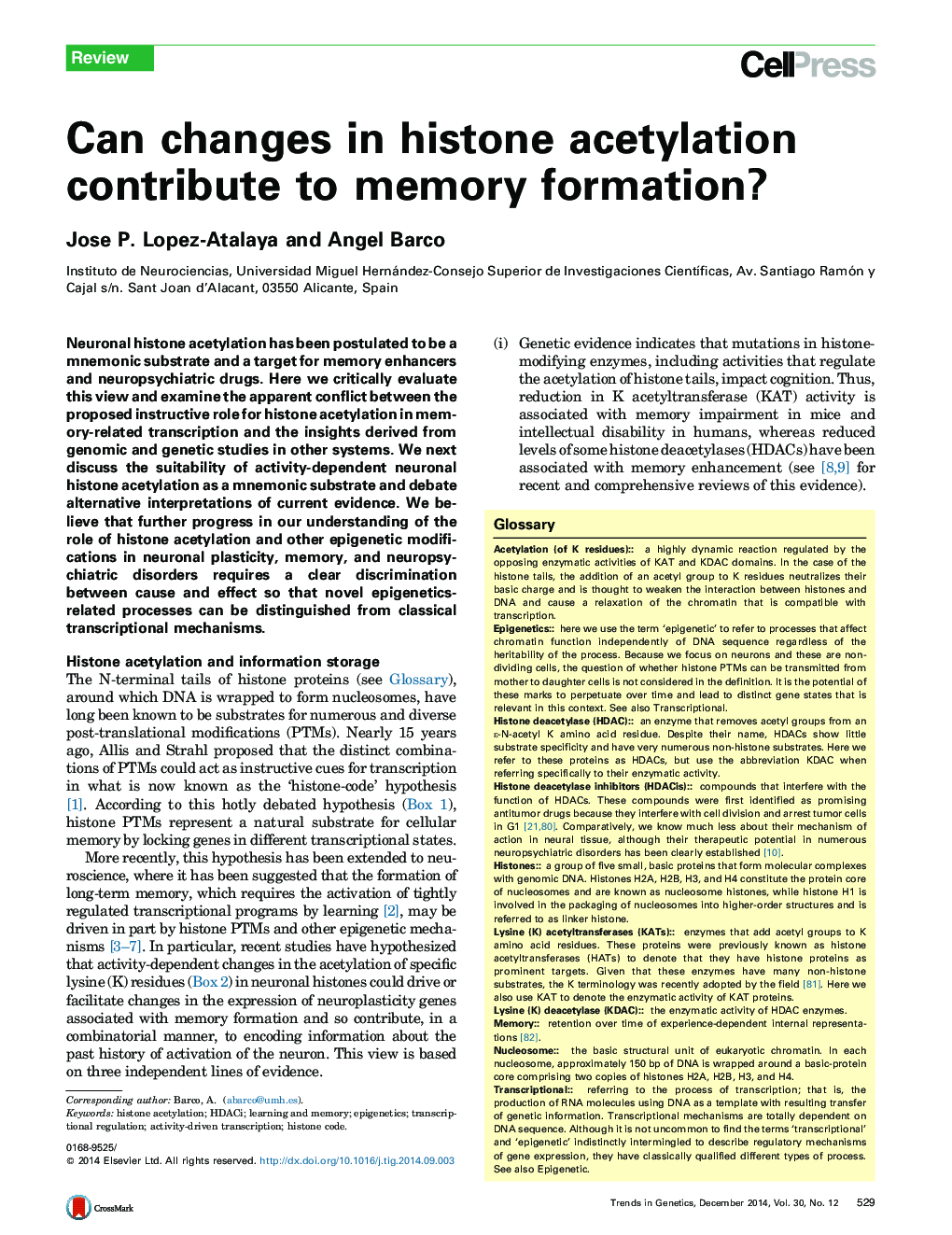| Article ID | Journal | Published Year | Pages | File Type |
|---|---|---|---|---|
| 2824742 | Trends in Genetics | 2014 | 11 Pages |
•K residue acetylation is involved in learning and memory processes.•Debate on the permissive or instructive role of histone acetylation continues.•Non-histone substrates could mediate HDACi effects in neuroplasticity.•The redundancy and uncertain function of histone acetylation cast doubt on its mnemonic role.
Neuronal histone acetylation has been postulated to be a mnemonic substrate and a target for memory enhancers and neuropsychiatric drugs. Here we critically evaluate this view and examine the apparent conflict between the proposed instructive role for histone acetylation in memory-related transcription and the insights derived from genomic and genetic studies in other systems. We next discuss the suitability of activity-dependent neuronal histone acetylation as a mnemonic substrate and debate alternative interpretations of current evidence. We believe that further progress in our understanding of the role of histone acetylation and other epigenetic modifications in neuronal plasticity, memory, and neuropsychiatric disorders requires a clear discrimination between cause and effect so that novel epigenetics-related processes can be distinguished from classical transcriptional mechanisms.
